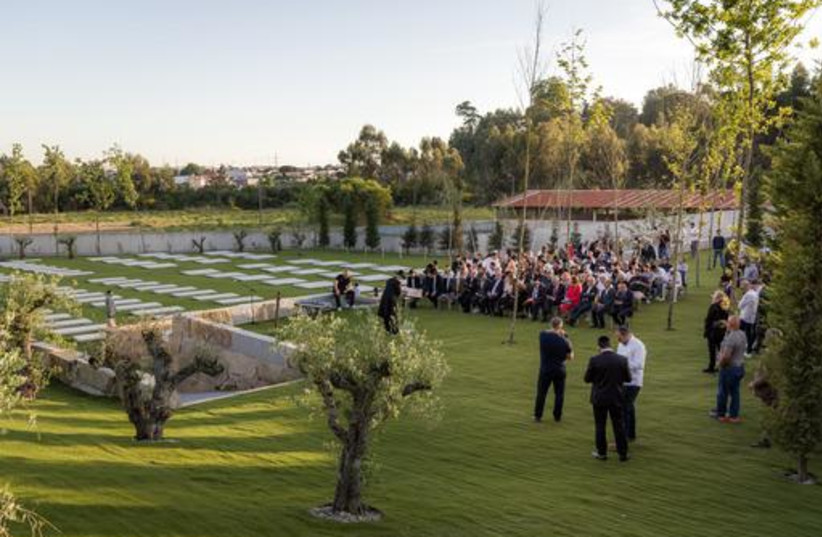The Jewish community of Porto – Portugal’s second-largest city – inaugurated its new cemetery last week with a ceremony on Israel’s Remembrance Day, which included a tribute to fallen Israeli soldiers and rituals dedicated to the new sacred ground. The event was presided over by rabbis from Portugal, Israel, the US and the UK.
The cemetery was destroyed in 1497 after the edict that banned Judaism in Portugal. “We do not forget that in the past we were robbed of all our assets, houses, even the cemetery was destroyed,” said Rabbi Asaf Portal, one of Porto’s rabbis.
According to a statement by the community, the cemetery is named the Isaac Aboab Field of Equality. Aboab was the “last gaon of Castile,” who lived and died in Porto following the expulsion of the Jews from Spain. “Unfortunately, we do not even know where the last gaon is buried because the persecution destroyed all traces of the Jewish community of the time,” stated Porto community Rabbi Daniel Litvak.
Another Porto rabbi, Yoel Zekri noted that “it would be impossible in Porto to build a private cemetery in a quiet, discreet location. The community decided to buy land outside the city, in a quiet location in the Maia municipality 8 km. from Porto.”

Maia Mayor António Silva Tiago said “Jews are and will always be very well received in Maia, a city close to Porto with a long Jewish tradition that is currently increasingly cosmopolitan and thriving.”
The new cemetery has about 300 individual gravesites, as well as family vaults and a ritual purification house. The president of Chabad Portugal, Rabbi Eli Rosenfeld, noted that “the new Porto Jewish community cemetery is proof that the Jews always regenerate. Having a Jewish burial is something of utmost importance in Jewish tradition. The dedication of the new Jewish cemetery is therefore a truly monumental occasion.”
The ceremony also brought together leaders of different religions. The presidents of the Jewish and Muslim communities of Porto, Jewish community president Gabriel Senderowicz and Abdul Manga, as well as the Bishop of Porto Manuel Linda had the opportunity to address those present, expressing “the strong ties and union,” of their institutions and religions “to help society to face the new challenges of materialism and lack of spirituality.”
What was the Inquisition?
In the late 15th century, the Portuguese government began to implement policies of persecution against the Jewish population within its borders. Jews were forced to either convert to Christianity or face expulsion from the country. In 1496, King Manuel I ordered the forced conversion of all Jews in Portugal, and those who refused were forcibly expelled from the country.
Over the next few years, thousands of Portuguese Jews were uprooted from their homes and forced to leave the country. Many of them fled to nearby countries such as Morocco and France, while others made their way to the Ottoman Empire, where they were welcomed and allowed to practice their religion freely. The expulsion of Jews from Portugal was a tragic event in the history of the country and had a profound impact on the Jewish communities throughout Europe and beyond.
